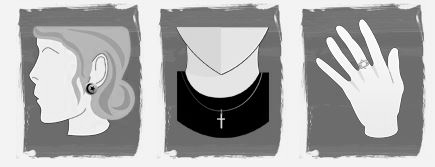
Since the last few weeks, a debate has been raging in Canada. Years of compromising between multiculturalism and Quebec province’s secularity have exhausted the patience of many Quebecers, which are known to fiercely defend their cultural identity. With the election of a separatist government in September 2012, it was predictable that bills and laws would be passed in order to enforce French and to protect the society from outside influence… it seems, though, that Pauline Marois and the Parti Québécois have crossed a dangerous line with the new secular charter.
Baptized the “Quebec Charter of Values”, it has faced a very cold reception in Montreal, where mayorship candidates and actual mayors have unanimously attacked some of its principles. Let’s see why it is causing such a rumble all around Canada.
What it would imply
The Parti Québécois’ proposal is made of five different points:
- The Charter of Human Rights and Freedoms should be modified in order to clearly state the religious neutrality of the state of Quebec. The Charter would also define under which conditions an accommodation could or could not be provided to the minorities. The equality between men and women would have to be respected at all cost.
- A duty of religious neutrality and reserve should be established by law for all state personnel. Promoting one’s religious beliefs while working should not be tolerated by the state.
- Public services should be received and offered with faces uncovered.
- Policies should be implemented by state organizations to make sure that religious neutrality is respected. The new policies should also help to decide how religious accommodation requests would be treated.
- Wearing conspicuous religious symbols should, in SOME cases, be prohibited for all state personnel. This is the main clause that caused a ruckus amongst Quebec medias, politicians and a good proportion of its population. Let’s analyze which signs would be accepted and which would not:
Symbols that would be excluded
From the pictograms, you can see that the niqab, the burqa and the hijab, three pieces of clothes traditionally worn by Muslim women, would not be tolerated. The kippa, a Jewish headgear, the Sikh turban and the Catholic’s huge cross’ necklaces receive the same treatment.
Symbols that would still be allowed

Bernard Drainville, the politician in charge of piloting the reform, decided that catholics should still be allowed to wear a regular crucifix, as long as it is not “too big”. Rings and earrings promoting religious beliefs will also be tolerated.
The crucifix that is hooked on the wall of Quebec’s Assemblée Nationale (National Assembly, the political house of the provincial government) will still be allowed as well, since it is considered to be a tradition instead of a catholic symbol.
Is the bill unconstitutional?
Since the official disclosure of the Charte des valeurs québécoises, many lawyers have started working on the case to see if it would be possible to declare it unconstitutional. Charles Bernard, which is in charge of web marketing for FSD Law Group, believes that this case will be hard to solve for judges.
« In the past, many accommodations were tolerated by court. For example, a woman wearing a niqab is still allowed to testify in court – even though it must be decided on a case-by-case basis – thanks to a ruling of the country’s Supreme Court. In the case of the Charter of Values, I do not see why the Supreme Court would back Quebec: after all, there is no sense of urgency in regards to religious accommodations right now. Prohibiting some conspicuous signs from being worn could be seen as discrimination. ».
There is, though, a chance for Quebec’s government: the notwithstanding clause, which immunizes a law from any judicial review, before OR after a court ruling. Going against a constitutional decision would definitely cause uproar and divide the population even more.
A right of withdrawal
Some institutions that would need some time to adjust to the regulation will benefit from a renewable 5 years’ right of withdrawal granted by the Government of Quebec. Those who will benefit from this right are Cégeps, Universities, public health and social services institutions and municipalities.
The opinion of other political leaders
The main opposition parties, the Parti Libéral du Québec (Quebec Liberal Party) and the Coalition Avenir Québec (Coalition for the future of Quebec), both dismissed the proposal in its current form.
Marc Tanguay, a liberal deputy, mentioned a few weeks ago that his party agrees on a few principles on the Quebec Charter of Values but that the State should be neutral, not the individuals. He also said that the Quebec Liberal Party was opposed to the ban of religious symbols and to the logic of the right of withdrawal.
Nathalie Roy, from the Coalition Avenir Québec, said that the project was too complicated and that the right of withdrawal was a bad idea: institutions that could benefit from it should simply be left out of the law. The party agrees with the ban on religious symbols but believe that it should be limited to state personnel in position of authority.
Charles Bernard is a web marketing expert that works for FSD Law Group, a Montreal Law Cabinet. He closely follows Canadian news and has a particular interest for human rights’ equality.
Latest posts by Howard Iken (see all)
- The Military & Getting Rightful Benefits After Divorce - January 25, 2019
- What Chapter 7 Bankruptcy Can Do for You - August 21, 2017
- Ongoing Case Regarding Obama Amnesty Executive Order - January 17, 2016
- Big Change in Law Regarding Fight Against Opiate Trafficking - November 1, 2015